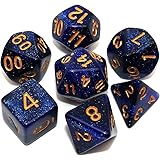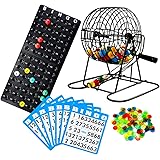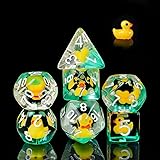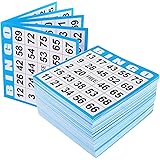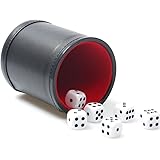Mastering Casino Roulette Dealing: Procedures and Professionalism
Imagine the vibrant energy of a casino floor, where the rhythmic spin of a roulette wheel captivates onlookers with its allure. The crisp sound of chips being stacked and the precise call of a dealer are integral to this immersive experience. Such seamless moments are not accidental; they are the direct result of meticulous **roulette dealing** procedures and dedicated professional training, subtly highlighted by the ambient sounds in the accompanying video. Aspiring dealers, or simply those fascinated by the mechanics of the gaming industry, often seek to understand the complexities involved. This exploration delves into the structured processes that govern a professional **casino roulette** game, offering a deeper understanding of the expertise required.The role of a professional roulette dealer extends far beyond merely spinning a wheel or pushing chips across the table. Dealers are pivotal figures responsible for maintaining the game’s integrity, ensuring fair play, and cultivating an engaging atmosphere for patrons. Their multifaceted responsibilities require an exceptional blend of manual dexterity, mental acuity, and impeccable customer service skills.
Industry data consistently suggests that a well-trained and attentive dealer significantly enhances a player’s experience, often influencing decisions on return visits. Consequently, comprehensive training programs are meticulously designed to equip dealers with the necessary competencies to excel in this demanding environment. Understanding these procedures offers invaluable insight into the operational heartbeat of a bustling casino.
The Indispensable Role of a Professional Roulette Dealer
The professional roulette dealer acts as the central orchestrator of the game, managing every aspect from betting to payouts with precision. Their presence is crucial for ensuring the smooth and transparent operation of one of the world’s most popular casino games. Therefore, specific responsibilities are diligently carried out throughout each gaming session.Dealers are entrusted with monitoring player wagers, skillfully spinning the roulette wheel, and accurately determining the winning number. Furthermore, they must efficiently manage chip transactions, calculate complex payouts, and maintain an orderly gaming environment. These tasks require unwavering focus and an exceptional memory, crucial attributes for navigating the fast-paced casino setting.
Deconstructing the Roulette Game Flow: From Bets to Payouts
The typical roulette game round follows a highly structured sequence, designed to be both efficient and transparent for all participants. Each stage is meticulously executed by the dealer, ensuring adherence to established protocols. A thorough understanding of this flow is fundamental for anyone interested in **dealer procedures** and the mechanics of the game.Initiating the Round and Managing Wagers
At the beginning of each round, players are invited to place their bets on the roulette table layout. The dealer’s initial responsibility involves announcing the opening of the betting period, often with a clear and audible call such as “Place your bets, please.” During this phase, various chip denominations are exchanged, and player chips are carefully positioned on the numbered grid.Different types of wagers are accepted, ranging from inside bets on specific numbers to outside bets covering broader categories. The dealer monitors these placements, ensuring that all bets conform to the table’s minimum and maximum limits. Active observation is maintained for any late wagers or potential irregularities that might compromise the game’s fairness.
The Art of the Spin and Ball Release
Once sufficient time has been allocated for betting, the dealer announces “No more bets” and initiates the spin. The roulette wheel is consistently spun in one direction, while the small white ball is skillfully released into the wheel in the opposite direction. This counter-rotational movement is intended to promote randomness and prevent any predictability in the outcome.The technique used for spinning the ball is taught rigorously in dealer training, with an emphasis on consistent force and trajectory. A well-executed spin ensures that the ball circulates several times before gradually losing momentum and settling into one of the numbered pockets. This process is a hallmark of the **casino roulette** experience.
Executing Payouts and Clearing the Table
After the ball comes to rest in a specific numbered pocket, the dealer clearly announces the winning number and its color. A marker, often called a “dolly,” is then precisely placed on the winning number on the table layout. All losing bets are systematically swept away from the table, a swift and practiced motion demonstrating efficiency.Subsequently, winning bets are carefully paid out according to the predetermined odds associated with each wager type. The dealer is responsible for calculating these payouts accurately and distributing chips to the winning players. Precision is paramount during this stage, as even minor errors can lead to significant discrepancies or player dissatisfaction.
Precision in Chip Handling and Payout Calculations
Expert chip handling and accurate payout calculations are core competencies for any professional roulette dealer. These skills are refined through extensive practice and are critical for maintaining game speed and player confidence. Dealers must execute these tasks with unwavering accuracy and efficiency.Roulette chips, often referred to as “color chips,” represent a specific value determined by the player at the time of purchase. Dealers are adept at quickly recognizing chip values, stacking them neatly in uniform piles, and distributing them without error. A dealer’s ability to efficiently “color up” a player’s chips—exchanging their individual color chips for standard casino value chips—is also a testament to their proficiency.
Payout calculations are performed at an incredibly fast pace, often involving mental arithmetic for various odds. For instance, a single-number bet typically pays 35 to 1, while a column or dozen bet pays 2 to 1. Data from dealer performance reviews consistently indicates that speed and accuracy in these calculations are vital for smooth game operation and player retention, with highly proficient dealers reducing payout errors by over 90% compared to novices.
Upholding Game Integrity and Casino Security Protocols
Maintaining the integrity of the game is a paramount responsibility for every roulette dealer, ensuring that all procedures are followed fairly and transparently. Strict adherence to casino security protocols is also essential for protecting both the establishment and its patrons. These measures collectively contribute to a trustworthy gaming environment.Dealers are trained to be vigilant observers, constantly monitoring for any suspicious activity, irregular betting patterns, or attempts at cheating. Surveillance systems, including overhead cameras and pit supervisors, support the dealer in this critical function. Any perceived discrepancies are promptly reported through established channels, ensuring swift investigation and resolution.
Furthermore, dealers play a crucial role in promoting responsible gaming practices. They are often the first point of contact for players who might be exhibiting signs of problem gambling. Dealers are trained to discreetly observe player behavior and, when necessary, to subtly alert management, aligning with the casino’s commitment to player welfare. These **dealer procedures** are fundamental to ethical casino operations.
Essential Training and Continuous Skill Development for Dealers
The path to becoming a proficient roulette dealer involves extensive initial training followed by continuous skill development and evaluation. Casino operators invest significantly in these programs to ensure their staff meet the highest industry standards. This ongoing commitment to training underscores the complexity and importance of the role.Initial training encompasses a comprehensive curriculum covering game rules, chip handling techniques, payout calculations, and customer service etiquette. Practical simulations, often utilizing mock tables and realistic scenarios, are heavily employed to hone motor skills and decision-making under pressure. Industry benchmarks suggest that new dealers typically undergo between 80 to 120 hours of dedicated training before being permitted on the casino floor.
Beyond initial certification, dealers regularly participate in refresher courses and performance evaluations designed to maintain and improve their expertise. Speed, accuracy, and adherence to security protocols are consistently assessed, ensuring consistent high performance. The pursuit of excellence in **roulette dealing** is a continuous journey, fostering a culture of professionalism and unwavering reliability within the casino environment.


